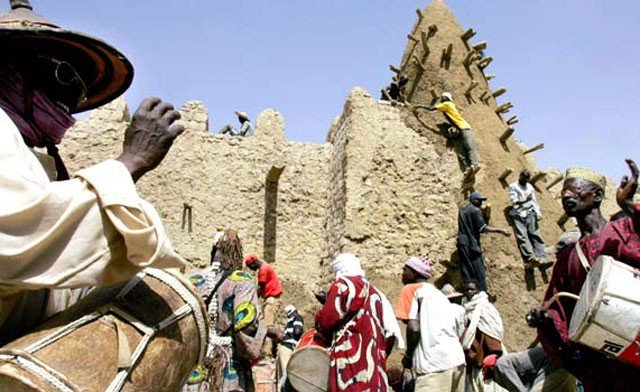
The U.N.'s World Heritage Committee on 2 July condemned the destruction of several mausoleums sacred to the Sufi strain of Islam in the western African nation of Mali. Fighting between government forces and Tuareg rebels has been raging since January, according to news reports.
"They are striking at the heart of what [the city of] Timbuktu stands for ... Mali and the world are losing a lot," Souleymane Bachir Diagne, a professor at New York's Columbia University and an expert on Islamic philosophy in Africa, told the Reuters news agency.
The 21-member committee, meeting in Saint Petersburg, Russia, is responsible for defining the kind of natural or cultural sites which can be considered for inscription on the World Heritage List, maintained by the United Nations Educational, Scientific and Cultural Organization's (UNESCO) World Heritage Convention. The committee decided on measures to help Mali protect its heritage, including the creation of a special fund to help conserve its cultural heritage, according to a news release.
The instability and insecurity resulting from the renewed clashes, as well as the proliferation of armed groups in the region, and a deepening crisis due to a coup d'état in March, have uprooted nearly 320,000 people, with many of them fleeing to neighboring countries, the committee said.
The three sacred tombs - the Mausoleums of Sidi Mahmoud, Sidi Moctar and Alpha Moya - are part of the Timbuktu site, which was an intellectual and spiritual capital and a center for the propagation of Islam throughout Africa in the 15th and 16th centuries.
Late last week, the committee accepted a request from the government of Mali to place Timbuktu, as well as the Tomb of Askia, on the List of World Heritage in Danger, which is designed to inform the international community of threats to the outstanding universal values for which a property has been inscribed on the World Heritage List, and to encourage corrective action.
The Committee also asked Mali's neighbours to help prevent the trafficking in cultural objects from the sites, and urged the African Union and the international community to do everything possible to help protect Timbuktu, inscribed on UNESCO's World Heritage List in 1988.
Over the past few days, UNESCO's Director-General, Irina Bokova, Secretary-General Ban Ki-moon and the President of the General Assembly, Nassir Abdulaziz Al-Nasser, have expressed their concern over the situation in Timbuktu, and condemned the attacks which damaged the mausoleums.
